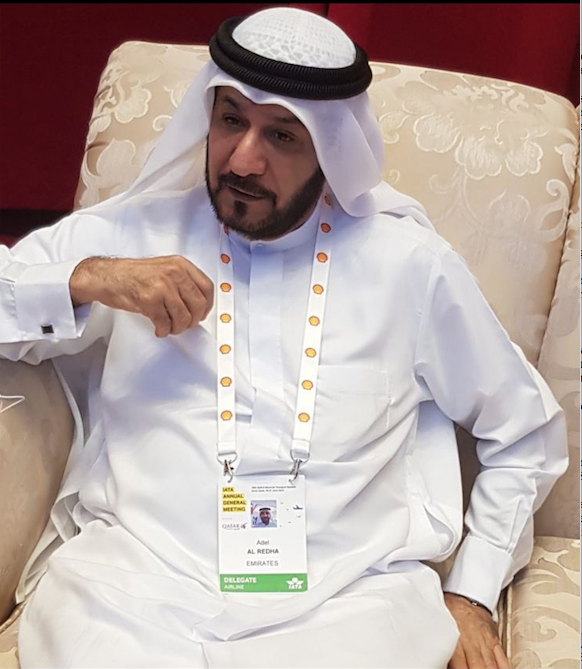DOHA: Emirates airline still hasn’t achieved pre-pandemic revenue levels, but its goal is to have the entire fleet flying in 2022, its president Tim Clark told Arab News.
At the International Air Transport Association’s Annual General Meeting in Doha, Clark discussed COVID-19 and its repercussions, saying: “The pandemic has caused an earthquake 9-10 on the Richter scale through the global economy, and what you are seeing now are the aftershocks.”
He said that the best way to deal with it is to be as collegial as possible.
“Come together and sort it out, rather than beating each other up, blaming games, price increases,” he added.
According to Clark, businesses need to figure out how to deal with the aftershocks to get the market back on track.
Emirates has never had to cut back on flight numbers, he pointed out. However, late last night they received a call from Heathrow airport in London to cancel their full flight to the destination, due to baggage handling issues, Clark said.
Come together and sort it out, rather than beating each other up, blaming games, price increases.
Tim Clark
“That is not what I call good planning, and that really does affect us,” Clark said.
The Independent reported that Heathrow has asked airlines operating from Terminals 2 and 3 to cancel 10 percent of their schedules for Monday (June 20) due to baggage handling issues.
Emirates narrows losses
Meanwhile, Adel Al-Redha, chief operating officer of the airline noted that it has successfully narrowed its losses to $950 million in the 2021-22 fiscal year, from a $5 billion net loss in the previous year, as the aviation sector strongly rebounds from the pandemic.
In an exclusive interaction with Arab News, Al-Redha said the airline is hoping to continue this growth and made it clear that the only challenge in the journey will be rising fuel prices.
“We continue to grow our cash. We continue to improve our performance and revenues. These are all good indications, the only challenge we have to worry about is the variables we are exposed to, which include fuel prices and currency exchange that are fluctuating. These are variables that impact directly on our operating costs,” said Al-Redha.

Adel Al-Redha, chief operating officer
100% capacity by 2023
Al-Redha added that Emirates will make profits in this financial year, and he expects to operate with 100 percent capacity by 2023.
The COO revealed that Emirates currently operates to 128 destinations, compared to 143 destinations before the pandemic outbreak.
Talking about going sustainable and achieving IATA’s net-zero goal by 2050, Al-Redha said that Emirates is working closely with Boeing and Airbus.
“By November this year, we are planning to operate one of our 777 with 100 percent sustainable aviation fuel. We are in discussion with Airbus to do the same trial on the Airbus A380. We are also in discussions with some of the companies to make SAF available at the airports,” added Al-Redha.
Hiring workforce
Al-Redha further noted that Emirates is planning to hire more people, as the aviation sector is currently on the path of recovery.
“We need to recruit over 5,000 crew members over the next 12 months. We are planning to hire 800 pilots, along with 1,500 people for IT jobs and over 400 staff within the airports. In areas where there is a demand, we continue to recruit,” he said.
Al-Redha added that Emirates is not competing with any of the other airlines in the Gulf Cooperation Council, instead, it is trying to provide the best for travelers.
“We always look at improving our product. And we always look at delivering the best experience to our customers. Each airline and each company has its own strategy. But we have to continue to invest in our product and we continue to invest to offer the best product to our customer,” he concluded.












